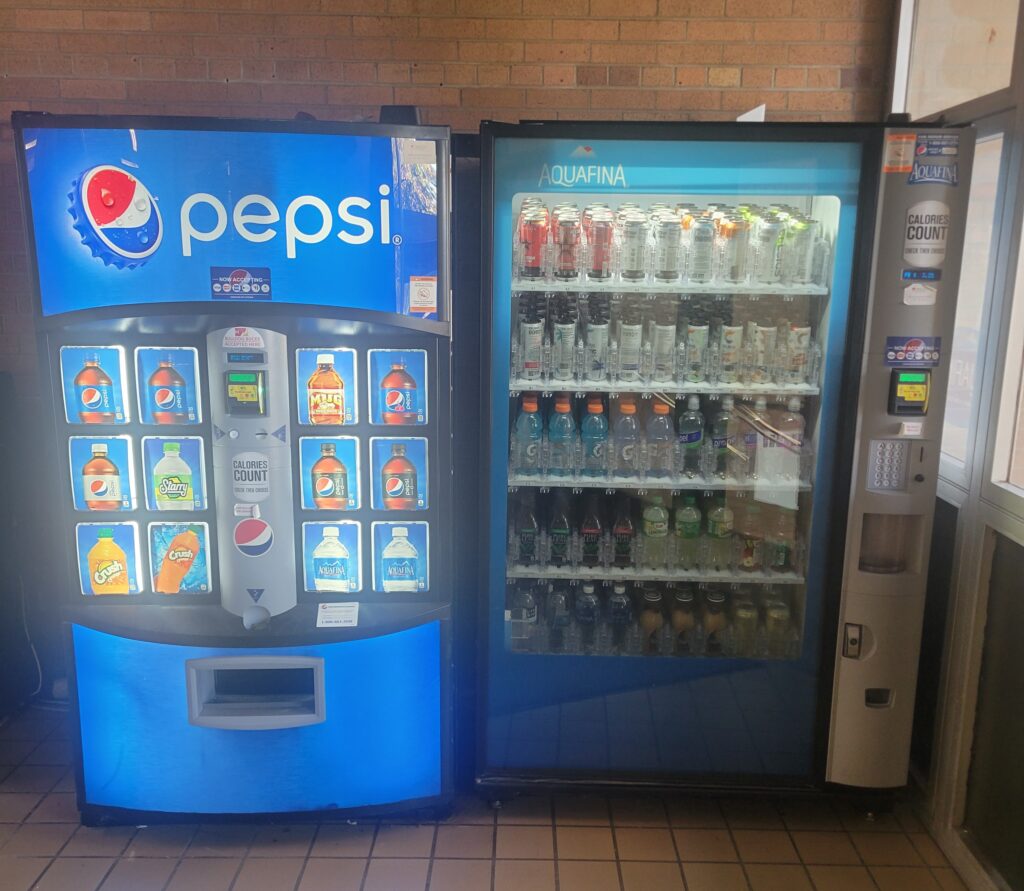Ferris State switched to Pepsi products around campus in the spring of the 2018-19 academic year, marking the end of a 20-year partnership with Coca-Cola. The question is whether we are better off since the switch.
Looking around campus, the vending machines are stocked with caffeinated beverages at nearly every turn, making energy drinks and caffeinated sodas easy to grab. While convenient, this widespread availability is fueling unhealthy sleeping habits and encouraging caffeine dependence.

It is no secret to anyone that being a college student comes with some restless nights studying away, but relying on caffeinated drinks to power through these late-night study sessions often comes at a cost. When faced with looming deadlines and demanding schedules, students may reach for that quick energy boost without considering the long-term effects on their health and well-being.
The presence of energy drinks and caffeinated sodas in vending machines throughout campus creates an environment where caffeine consumption becomes normalized.
Rather than turning to healthier options or prioritizing adequate sleep, students may feel pressured to keep caffeinated drinks on hand to combat fatigue. This creates a vicious cycle: students consume caffeine to stay awake, struggle to fall asleep later and wake up tired, requiring even more caffeine to function.
I have found myself caught in this cycle many times throughout my stay at Ferris, especially during midterm season. I have felt tempted to grab one of the caffeinated beverages to squeeze in a few more hours every day.
Moreover, part of what makes this cycle so easy to fall into is the placement of these vending machines in the residence halls. When I am in the place where I am supposed to relax and wind down for the day, there’s caffeinated beverages a couple minutes away from me.
It is obvious from all the posters around campus and the many emails sent out by the Personal Counseling Center that the university wants to take an interest in its students’ mental health.
Assuming this is truly the case, they have an opportunity to take a proactive approach to student health. By examining the beverage offerings in vending machines across campus, the university can help create a healthier environment. Reducing the number of caffeinated options while increasing the availability of non-caffeinated alternatives, such as herbal teas and flavored water, could encourage students to make healthier choices.
I’ve noticed that the constant presence of caffeinated beverages often blurs the lines between convenience and necessity. During my occasional late-night study sessions, I rationalize my beverage choices, telling myself that one more energy drink is what I need to power through. As I reflect on those moments, I realize that what I truly need is a break to rest and recharge.
This easy access to these drinks encourages a mindset where caffeine becomes a crutch rather than a helpful indulgence once in a while.
This reliance on caffeine is not an individual struggle. I feel it reflects a broader trend among students at Ferris. We are conditioned to believe that late nights and heavy workloads are badges of honor, and reaching for a caffeinated beverage is simply part of the routine.
I don’t want caffeinated beverages to be removed from the vending machines, we need to change how we view them. I would love to see more non-caffeinated options available and for the university to recognize the issues with excessive caffeine. If we can do that, we can all make healthier choices.
